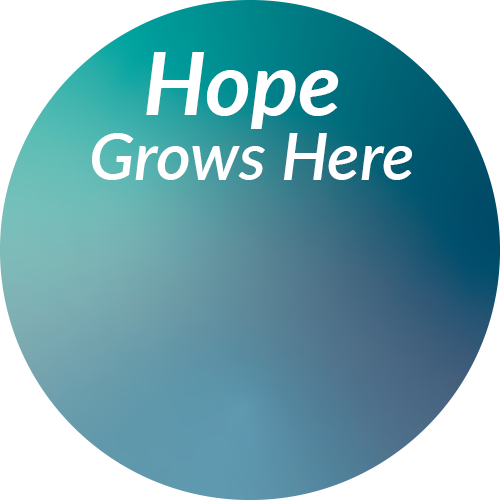Rogers Behavioral Health is a private, nonprofit provider of behavioral health services. We are also nationally recognized for specialty psychiatry and addiction services. The Rogers Research Center builds on more than a century of experience in clinical practice.
With the overarching goal of advancing evidence-based practice and improving mental health outcomes through innovation and research, we’re striving to become the premier patient-centered mental health research organization in the world. To find gold-standard treatment for yourself, a loved one, or a patient, call 833.308.5887.
Rogers Research Center Annual Reports
Click the links below to read the research reports published by our team.

Rogers Behavioral Health Research Initiatives
Treatment Enhancement
Rogers is positioned to collaborate with leaders in the field to explore treatment enhancement with the addition of high-precision, non-invasive stimulation therapy provided by new and improved transcranial magnetic stimulation (TMS) and transcranial direct current stimulation (tDCS).
Our research teams are exploring cognitive bias modification (CBM) applications in OCD and beyond. Other research foci include collaborative trialing of Selective Serotonin Reuptake Inhibitors (SSRI) and the function and effects of sleep quality in recovery.
Predictive Analytics
 Rogers’ growing data infrastructure uniquely positions us to use complex sets of variables to understand our patients at an individual level. Using the power of population-level datasets, we can derive impactful insights into mental health and addiction prediction and treatment strategies. Rogers has long had an interest in creating and employing algorithms to improve the delivery and efficacy of treatment and predict outcomes. Our internally developed suicide risk prediction algorithm helps us identify which patients are most at risk for suicide, allowing us to provide more targeted and effective care.
Rogers’ growing data infrastructure uniquely positions us to use complex sets of variables to understand our patients at an individual level. Using the power of population-level datasets, we can derive impactful insights into mental health and addiction prediction and treatment strategies. Rogers has long had an interest in creating and employing algorithms to improve the delivery and efficacy of treatment and predict outcomes. Our internally developed suicide risk prediction algorithm helps us identify which patients are most at risk for suicide, allowing us to provide more targeted and effective care.
We continue to develop real-time models that refine clinical decision support and treatment response predictions. The Rogers Behavioral Health Research Center is currently exploring telehealth delivery and efficacy and looking to expand our scope of research.
Precision Medicine
Genetics research is an important path toward advanced diagnostics, risk prediction, personalized medicine, and treatment enhancement strategies. Rogers is creating a phenotype-enhanced behavioral health biobank. This dataset will be the first of its kind to include both genotype and phenotype via our item-level patient-reported outcomes data utilizing ROAS (Rogers Online Assessment System). Developed in 2012 specifically for Rogers, ROAS is utilized to assign, manage, and track self-reported clinical assessments.
Rogers’ Research Center Biobank will not only contribute critical data to advance research for the special populations it serves but also provide treatment teams with vital information about genetic and other molecular factors impacting treatment outcomes of individual patients.
Our Areas of Strength
The Rogers Behavioral Health Research Center has built three areas of strength: research facilities, access to large-scale data, and an interdisciplinary research team.

Research Facilities
Rogers Behavioral Health Research Center is headquartered in the Ladish Co. Foundation Center on the Oconomowoc, WI, main campus. This area includes offices, labs, and shared space for an integrated and interdisciplinary research team.
Central departments include the Biobank, Neuroscience Lab, and Behavioral Lab:

Each department contributes to our efforts in predictive analytics and precision treatment.
Access to Large-Scale Data
 Building on more than a century of experience in evidence-based clinical practice, Rogers Behavioral Health has been collecting data on patient outcomes using gold-standard self-assessments for more than 25 years. Rogers’s proprietary Online Assessment System (ROAS), the program used to assign, manage, and track self-report clinical assessments, is fully integrated into Rogers’s electronic medical record.
Building on more than a century of experience in evidence-based clinical practice, Rogers Behavioral Health has been collecting data on patient outcomes using gold-standard self-assessments for more than 25 years. Rogers’s proprietary Online Assessment System (ROAS), the program used to assign, manage, and track self-report clinical assessments, is fully integrated into Rogers’s electronic medical record.
Currently, there are more than 1 billion discrete data points derived from 2.5 million patient assessments. Acquisition of this data continues electronically, as an average of 1,600 different patients are treated daily throughout the Rogers network of clinics and hospitals.
With the largest OCD and anxiety programs in the world, Rogers has a significant quantity of patient self-report and treatment outcomes data in these areas alone. Daily, Rogers treats more than 300 patients for OCD and anxiety.
Interdisciplinary Research Team
Rogers’ team of scientists and researchers has a broad range of experience spanning areas of neuroscience, data science, and psychology. In addition, our administrative and research support team brings decades of experience and wisdom from different areas of health care and research.
Ethics, Patient Safety, and Data Security
Rogers Research Center provides resources to investigators that foster the ethical conduct of research, ensure compliance with federal, state, sponsor, and agency requirements, and protect the safety and privacy of research participants.

Onboarding Researchers and Research Teams
All Rogers employees intending to conduct research must apply to become a Principal Investigator (PI) through the Research Center. Prior to conducting any research, the PI must attest to the Research Financial Conflict of Interest (FCOI) policy and disclose any potential conflicts of interest.
All research study team members must also disclose potential financial conflicts of interest and attest to the Research FCOI policy.
Human Subjects Research Protection—Institutional Review Board
The Rogers Institutional Review Board (Rogers IRB) ensures clinical research complies with the laws and policies designed to protect human research subjects and their identifiable data or medical records. Members of Rogers IRB are researchers, clinicians, other employees, and community representatives who have been trained to assess the safety and ethical standards of all research involving human subjects and their identifiable data.
Research Ethics and Integrity
Rogers Research Center maintains strict adherence to its Research Financial Conflict of Interest (FCOI) Policy.
Regulatory and feasibility reviews are conducted by Research Center staff prior to the submission of all funding proposals. The review assesses whether there are any issues relative to the FCOI policy; compliance with all appropriate Rogers policies, federal or state regulations, and sponsor/funder guidelines.
HIPAA compliance review and monitoring as appropriate within research is the responsibility of the IRB.
Financial compliance of all funded research is monitored by the Research Grant Specialist and the Grant Accountant, although the PI maintains overall responsibility and compliance for specific projects.
Research Safety
Rogers Research Center provides resources to investigators that foster the ethical conduct of research, ensure compliance with federal, state, sponsor, and agency requirements, and protect the safety and privacy of research participants.
Inclusivity in Research
No one is excluded from participating in research based on gender, age, ethnicity, race, or religion. Rogers takes pride in an inclusive healthcare environment that services patients from diverse backgrounds.
Patient and Family FAQs
No, research is always completely voluntary. A patient will never be required to participate as a condition of treatment or services.
Every research study conducted at any Rogers location is required to have a participant and confidentiality plan to protect a participant’s privacy. This plan is reviewed for completeness and effectiveness by an Institutional Review Board (IRB). The IRB is responsible for overseeing the maintenance of the privacy and security of those participating in research and their data.
Anyone may participate in a research study if study eligibility criteria are met.
Yes, there is often a need for community members to participate in research studies.
If you have an interest in finding out if you are eligible to serve as a study volunteer participant, please contact: research@rogersbh.org.
There is no cost to participate in a research study. Whenever possible, the person leading the study and their team members will seek to minimize the demand for participants’ time to participate in research. For some studies, additional time, visits, or transportation will be required.
Participants may leave a study at any time they wish. The person leading the study and their team members will work with the participant and, if applicable, with their care team to decide the best timing and manner of discontinuing their participation.
In order to improve our understanding of behavioral health issues and ways to improve treatment and outcomes in the field, as well as for our own patients, our goal is to publish and present the results of our research. We engage in robust, clinically relevant, high-quality research that is published in high-impact, peer-reviewed scientific journals and presented at nationally recognized professional conferences. Communication of research results never reveals information that identifies individual participants. All research participants, families, and community members are welcome to access the results published on our website.
Yes, Research Center staff work closely with Rogers Behavioral Health Foundation to help coordinate individual donations designated for research at Rogers. Visit the Donate page or contact Rogers Behavioral Health Foundation for more information.
For Partners and Collaborators
Rogers Research Center welcomes the opportunity to connect our scientists and researchers with industry partners for innovative collaborations. The Research Center has a team of engaged scientists focused on innovative approaches to behavioral health, and a dedicated staff supports our partners to streamline the negotiation process, identify additional partnership opportunities, and ensure a successful collaboration.

Partnerships
For Rogers colleagues interested in exploring potential internal collaborations, our research team is excited to work with you—meet our team to find out our specific areas of interest and research.
For external partners or those interested in exploring external partnerships with industry, academic, or other community-based organizations, please contact us at research@rogersbh.org. We can provide support in negotiating contracts, memoranda of understanding, and agreements, including data sharing.
Research Funding
Research funding generally comes from:
Multidisciplinary Collaborators
The Research Center is interested in exploring collaborative research ideas with researchers from other organizations and across academic disciplines. We continue to partner with community-based organizations to catalyze projects that have the potential to improve the lives of behavioral health patients.
For those interested in exploring these possibilities, please email research@rogersbh.org.
Extramural Recruiters of Rogers Patients
Rogers Behavioral Health works with external organizations that are interested in recruiting Rogers’ patients to participate in their research studies. Please email research@rogersbh.org to discuss your request.

Find Out More from Rogers Behavioral Health
We are constantly striving to improve outcomes through research and collaboration with leaders in the field. If you are interested in working with us or learning more about our research initiatives, please call us at 833.308.5887. Let’s work together to advance evidence-based practices and improve mental health outcomes for all.








